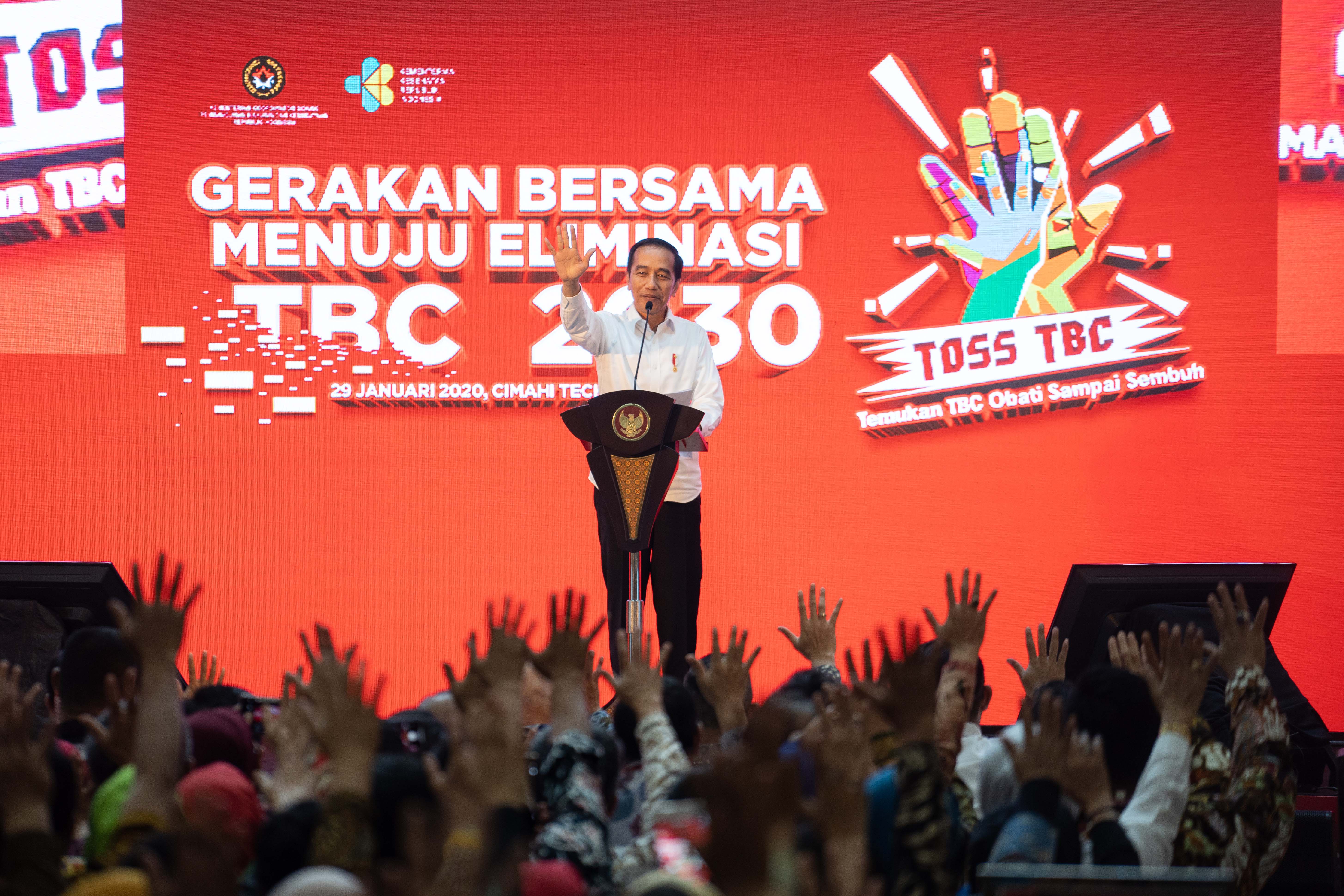The JEMM 2020 was held from 20-30 January 2020 to review the performance and progress of the TB control programme in Indonesia since the last programme review in 2017.
It was conducted through workshops and desk reviews in Jakarta with stakeholders of the five provinces that participated in the JEMM 2017 (West Sumatera, DKI Jakarta, Central Java, South Kalimantan, Southeast Sulawesi, and Papua). Subsequently, the team - consisting of external and internal reviewers from WHO HQ, WHO SEARO, the Global Fund, STOP TB Partnership, USAID, GLC, professional organizations, national TB committee, community representatives, TB partners, WHO Indonesia and Ministry of Health - went on field visits to four provinces: South Sumatera, West Java, East Kalimantan, and East Nusa Tenggara.

Caption: Reviewing the process of data entry to the TB information system during a field visit to Sikumana Puskesmas, East Nusa Tenggara.
Photo credit: Yoana Anandita/WHO, 2020.The experts observed and reviewed the performance of programme interventions and made several key recommendations to facilitate evidence-based decisions on strategic initiatives and interventions to end TB. The findings from the JEMM 2020 will be used to support NTP in preparing the next ‘National Action Plan to End TB’ and to improve the current operations, gearing towards reaching the targets of the End TB strategy, the UN High-Level Meeting on TB (UNHLM) commitments on TB, and the Sustainable Development Goals (SDGs).

Caption: President Joko Widodo launched a presidential tuberculosis elimination initiative programme in January 2020.
Photo credit: Stop TB Partnership Indonesia, 2020.
In 2017, JEMM urged the country to explore a Presidential Initiative on TB to enable and accelerate a multi-sectoral response to this preventable and treatable epidemic and ensure that Indonesia would be making the necessary investments to end TB. To this end, during the last week of the review, President Joko Widodo launched the Presidential Initiative in Cimahi. The highest political commitment for TB control towards elimination is now in place and a Presidential Decree is expected to follow this year.
The team presented the following main recommendations to the Ministry of Health and stakeholders:
- The NTP should take full advantage of the Presidential TB Initiative to improve the quality of care, prevention, and treatment delivered to all TB patients. In addition, all patients should also be notified.
- To improve the quality of care, the NTP should expand the scope and quality of the public-private mix (PPM) initiative as a priority.
- The MoH should recruit trained staff to carry out the public health functions required for TB control, care, and prevention.
- A major training initiative is needed to significantly upskill both, the public and private health facility staff delivering TB services to patients.
- MoH and BPJS Ketenagakerjaan should aim to make TB care more cost-efficient, by implementing the proposed pilot initiative to test the performance-based, TB-specific BPJS payment mechanisms at primary and secondary care levels.
- NTP needs to improve programmatic management of drug-resistant TB (DR-TB), facilitate TB/HIV collaborative activities, and expand the uptake of TB preventive treatment for household contacts.
- Interventions focusing on engagement and empowerment of TB survivors and civil society need scaling-up.
Main image: TB is one of the priority programmes in Puskesmas
Photo credit: Yoana Anandita/WHO, 2020.
